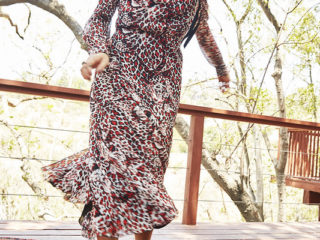Over the next few weeks, Darling will publish a How to Acknowledge and Process series on how to handle difficult emotions: anger, envy, disappointment, anxiety, grief, rejection and shame. This article is an introduction to that series.
In today’s culture, we live in a world where we fear failure and everyone gets a trophy, win or lose. Ghosting has become a part of our everyday vernacular as we run from hard conversations and accountability. We block, mute and unfriend people because hard conversations are just that—hard.
If we address our own hurt, anger, disappointment or jealousy, then we might be confronted with the reality that we, too, are in need of growth. It is understandably uncomfortable—and even scary—to feel these difficult emotions, let alone be seen experiencing them. There’s a level of vulnerability required to acknowledge and process hard emotions that the easier emotions (like joy, excitement and anticipation) don’t require of us.
There’s a level of vulnerability required to acknowledge and process hard emotions.
Vulnerability can feel dangerous with criticism, blame and judgment possibly waiting on the other side. The stakes are high. Fear hijacks our courage when it’s time to show up authentically and stand up for what is true while acknowledging our humanity, mistakes and concerns.
If you want more bravery and courage in your life, then building your emotional muscle to acknowledge and process is a requirement. There is power in the ability to feel hard things. When we claim these emotions and truly value what they have to offer without letting them overwhelm us, healing, hope and change can happen.
There is power in the ability to feel hard things.
These hard emotions hold information—the stories of the wrongs that need to be righted, the course corrections we need to make in our lives, insight into our deep desires and wisdom on necessary boundaries. This information can catapult us to higher levels of self-awareness and growth than we could’ve ever imagined.
Bypassing difficult emotions and the nuggets of wisdom they hold can do a lot of harm. Instead, we can choose to lead ourselves and others with more courage, kindness and compassion as we wrestle well with difficult emotions. First, we must learn to wrestle well with hard emotions—to feel the emotions, to acknowledge and to somehow own them without allowing them to control us.
We must learn to wrestle well with hard emotions
The goal of this series is to learn to befriend difficult emotions. We will explore seven different emotions—anger, envy, disappointment, anxiety, grief, rejection and shame— and offer tips on how we can utilize them on our paths to more meaningful and impactful lives. Hard emotions are, in fact, hard, but this does not mean they should be avoided.
Do you run from hard emotions? What emotions would you like to see discussed in this series?
Image via Fawn Deviney, Darling Issue No. 21












2 comments
Thanks for reading, Charmaine!
I can’t wait to read more from this series! I’ve always had difficulty managing my emotions – avoiding them or letting them get the best of me. Interested to see what your take on the specific emotions are mentioned are! 🙂
–
Charmaine Ng | Architecture & Lifestyle Blog
https://charmainenyw.com